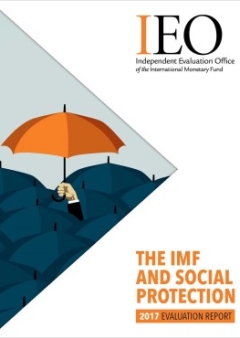
The IMF and Social Protection
Over the past decade, the IMF has stepped up its attention to social protection as it has dealt with the aftermath of the global financial crisis and addressed concerns from the impact of food and fuel price shocks and broader stresses on low-income groups and the most vulnerable. Thus, the IMF has moved beyond its traditional “fiscal-centric” approach to recognize that social protection can also be “mac- ro-critical” for broader reasons including social and political stability concerns.
Evaluating the IMF’s involvement in social protection is complicated by the fact that there is no standard definition of social protection or of broader/overlapping terms such as “social spending” and “social safeguards” in (or outside) the Fund. In this evaluation, social pro- tection is understood to include policies that provide benefits to vulnerable individuals or households. Food and fuel subsidies are also covered to reflect that such policies have social protection elements, but the evaluation does not cover broader policies for long-term poverty reduction such as health and education spending.
This evaluation found widespread IMF involvement in social protection across countries although the extent of engagement varied. In some cases, engagement was relatively deep, spanning different activities (bilateral surveillance, technical assistance, and/or programs) and involving detailed analysis of distributional impacts, discussion of policy options, active advocacy of social protection, and integration of social protection measures in program design and/or conditionality. In others, it was more limited, emphasizing the relevance of protecting vulnerable groups and increasing fiscal resources for related expenditures, but with little detailed analysis or follow-up.
